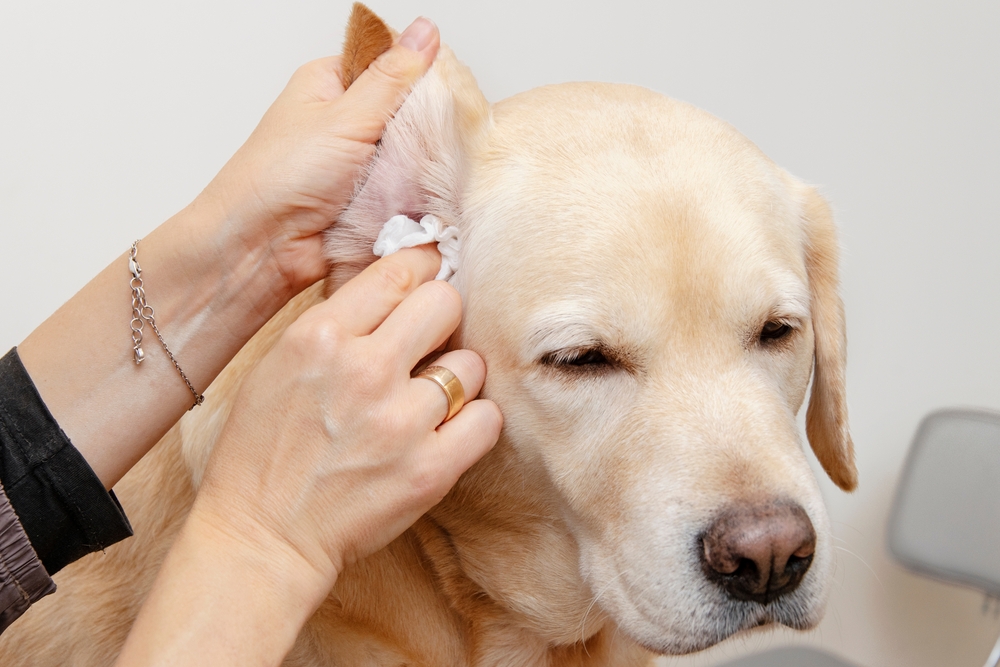
Ear infections are a common health issue that can affect pets of all ages and breeds. These irritating conditions can cause discomfort, pain, and even hearing loss if left untreated. As a responsible pet owner, it's crucial to be aware of the signs and symptoms of ear infections and take prompt action to address them.
What Causes Ear Infections?
Ear infections in pets can arise from a variety of factors, including:
Bacterial or fungal overgrowth: Certain bacteria and fungi can thrive in the warm, moist environment of the ear canal, leading to an infection.
Allergies: Environmental or food allergies can cause inflammation and irritation in the ear, making your pet more susceptible to ear infections.
Ear mites: These tiny parasites can burrow into the ear canal, triggering an inflammatory response and creating the perfect breeding ground for infections.
Excessive moisture: Swimming, bathing, or exposure to humid environments can increase the risk of ear infections by providing a damp environment for bacteria and fungi to proliferate.
Underlying health conditions: Diseases such as hypothyroidism or diabetes can weaken the immune system and make your pet more prone to ear infections.
Understanding the root cause of the infection is crucial for effective treatment and prevention.
Recognizing the Signs of an Ear Infection in Your Pet
Identifying the signs of an ear infection in your pet can help you take swift action to address the issue. Some common symptoms to watch out for include:
Excessive head shaking or tilting
Scratching or pawing at the affected ear
Redness or swelling in the ear canal
Discharge from the ear, which may be yellow, brown, or even bloody
Foul odor emanating from the ear
Sensitivity or pain when touching the ear
If you notice any of these signs in your pet, it's essential to schedule an appointment with your veterinarian for a proper diagnosis and treatment plan.
Why It's Crucial to See a Veterinarian for Proper Diagnosis
While it may be tempting to try and treat an ear infection at home, it's crucial to have your pet examined by a veterinarian. Your veterinarian can perform a thorough examination and, if necessary, take samples from the ear to determine the underlying cause of the infection, whether it's bacterial, fungal, or caused by mites. Based on the diagnosis, your veterinarian can prescribe the most effective treatment.
Left untreated, ear infections can lead to serious complications, such as ruptured eardrums, chronic inflammation, or even spread to the middle or inner ear, causing permanent damage. Your veterinarian will be able to monitor your pet's progress and adjust the treatment plan as needed to ensure a full recovery.
Common Treatments for Ear Infections in Pets
The specific treatment for your pet's ear infection will depend on the underlying cause, the severity of the condition, and your veterinarian's assessment. Some common treatments for ear infections in pets include:
Topical medications: Your veterinarian may prescribe ear drops or ointments containing antibiotics, antifungals, or anti-inflammatory agents to address the infection and reduce inflammation.
Oral medications: In some cases, your veterinarian may recommend oral antibiotics or anti-inflammatory medications to treat the infection from the inside out.
Ear cleaning: Regular cleaning of the ear canal using specialized ear cleaners can help remove debris, excess wax, and any remaining traces of the infection.
Surgical intervention: In severe or chronic cases, your veterinarian may recommend a surgical procedure to remove excess tissue, repair a ruptured eardrum, or address any underlying structural issues.
Addressing the underlying cause: If the ear infection is related to an underlying condition, such as allergies or hypothyroidism, your veterinarian will also address the root cause to prevent future infections.
If you suspect your pet has an ear infection, contact Animal Hospital of Humble. We will provide a thorough examination, accurate diagnosis, and personalized treatment plan to get your pet back to their happy, healthy self. Visit our office in Humble, Texas, or call (281) 812-1960 today.







